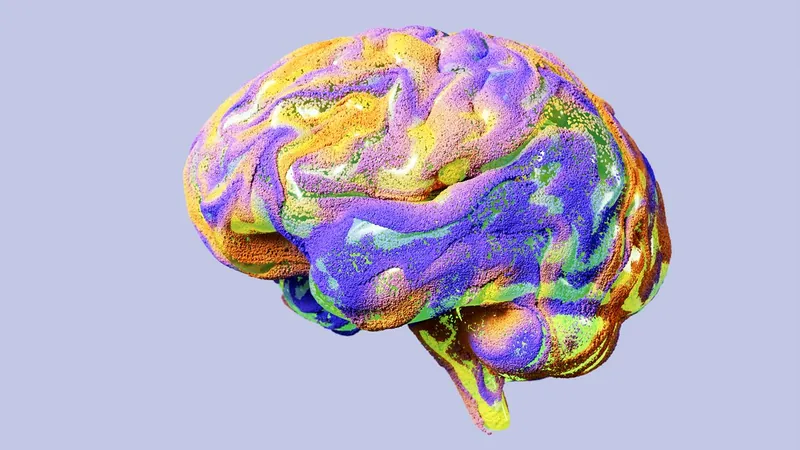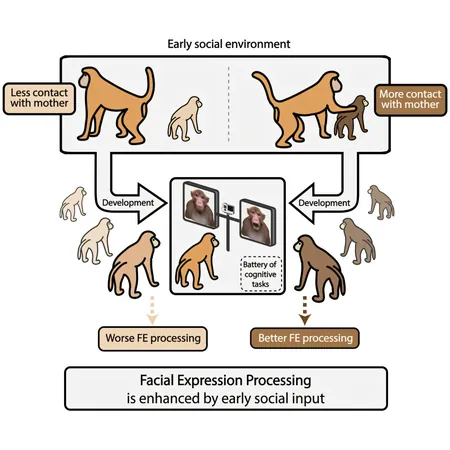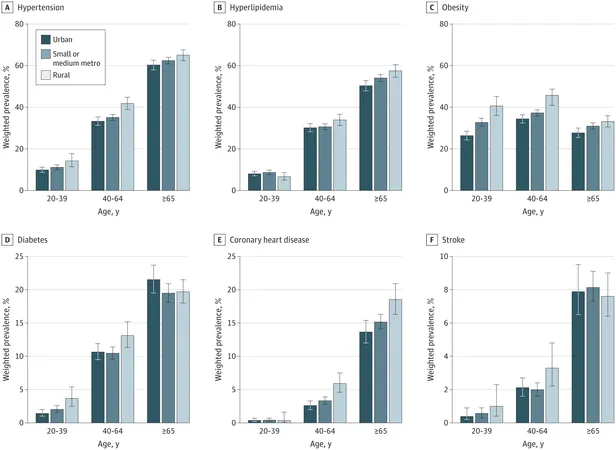
Brain Aging Accelerates Dramatically Around Age 44 — Could Ketone Supplements Be the Key to Protection?
2025-03-26
Author: Li
Recent research reveals that human brains begin to age at an accelerated rate around the age of 44, reaching their peak aging velocity by age 67. This groundbreaking study, published in *Proceedings of the National Academy of Sciences (PNAS)*, indicates a worrying trend for middle-aged individuals regarding brain health.
The new findings echo previous research, which suggested that significant moments of accelerated aging occur at ages 44 and 60, often correlating this age-related decline with insulin resistance—a condition where cells require more insulin to effectively manage blood sugar levels. Intriguingly, the study also presents initial evidence that ketone supplements may offer protective benefits against certain forms of brain aging.
What Are Ketones and How Do They Work?
Ketones are compounds produced by the liver that serve as an alternative energy source when glucose levels are low. Researchers theorize that if the brain struggles due to insufficient sugar supply, ketones could provide the necessary energy to maintain its functions.
However, further exploration is essential to substantiate the benefits of ketone supplements for brain health.
Early Warning Signs of Brain Aging
In this comprehensive analysis, researchers utilized data from four existing brain scan datasets, including over 19,300 participants aged between 18 and 90 years. The study involved both functional magnetic resonance imaging (fMRI), which measures blood flow in the brain, and electroencephalograms (EEGs), which capture the electrical activity of neurons.
The researchers identified that disruptions in blood flow and electrical signals between various brain regions might indicate a breakdown in neural communication—an early sign of aging. Such disruptions are also characteristic of neurodegenerative diseases, with the severity correlating with overall age-related decline.
Their findings pinpointed an alarming trend: the brain's aging process begins to accelerate significantly around age 44, intensifying until age 67, after which the rate of aging appears to stabilize around age 90.
The Link Between Insulin Resistance and Brain Aging
The study's primary investigator, neuroscientist Lilianne Mujica-Parodi, highlighted the unanticipated findings that effects might manifest as early as the 40s. The team discovered that participants in their 40s with high blood sugar levels exhibited faster brain aging than their insulin-resistant peers without high blood sugar.
Research also revealed that certain brain regions age at different rates, raising questions about the potential insulin dependency of these areas. Notably, the GLUT4 protein is known to transport sugar into cells, and the data indicated that regions showing rapid aging depend heavily on GLUT4 activity.
Conversely, regions that aged more slowly were linked to higher levels of proteins that facilitate ketone transport, suggesting a vital role for ketones as an alternative energy source in these healthier brain areas.
Ketone Supplements: A Possible Solution?
Given these findings, the researchers evaluated whether ketone supplements could mitigate brain aging effects. They recruited 101 individuals, ranging from 20 to 79 years, and administered either a ketone-rich drink or a sugary beverage after conducting fMRI scans. Results indicated that ketone intake reduced brain network disruptions linked to aging, particularly in individuals aged 40-59.
However, the research has limitations; it only assessed immediate effects after a single administration of ketone and glucose drinks without tracking long-term cognitive outcomes.
Moving forward, Mujica-Parodi emphasized the need for longitudinal studies, assessing the effects of ketone supplements over extended periods and exploring dietary strategies to prevent insulin resistance in the first place.
Dr. Luis Adrian Soto-Mota further noted the intriguing possibility that the human body can produce ketones under low glucose conditions, a principle at the heart of popular ketogenic diets. Maintaining such diets can present challenges, yet they may be beneficial for those unable to produce sufficient ketones due to severe insulin resistance.
In summary, while this research sheds light on the critical age-related shifts in brain health and the promising role of ketones, it also underscores the need for continued exploration in order to understand how to harness these findings effectively for optimal brain health as we age.




 Brasil (PT)
Brasil (PT)
 Canada (EN)
Canada (EN)
 Chile (ES)
Chile (ES)
 Česko (CS)
Česko (CS)
 대한민국 (KO)
대한민국 (KO)
 España (ES)
España (ES)
 France (FR)
France (FR)
 Hong Kong (EN)
Hong Kong (EN)
 Italia (IT)
Italia (IT)
 日本 (JA)
日本 (JA)
 Magyarország (HU)
Magyarország (HU)
 Norge (NO)
Norge (NO)
 Polska (PL)
Polska (PL)
 Schweiz (DE)
Schweiz (DE)
 Singapore (EN)
Singapore (EN)
 Sverige (SV)
Sverige (SV)
 Suomi (FI)
Suomi (FI)
 Türkiye (TR)
Türkiye (TR)
 الإمارات العربية المتحدة (AR)
الإمارات العربية المتحدة (AR)